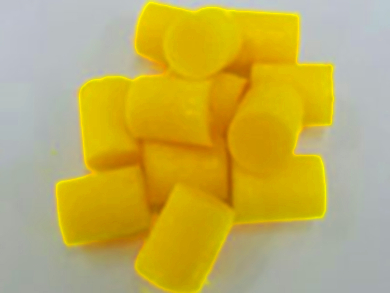Self-microemulsifying drug delivery systems can improve the oral bioavailability of certain lipophilic drugs. Ruedeekorn Wiwattanapatapee, Prince of Songkla University, Songkhla, Thailand, and colleagues studied systems made from biopolymer sponges, which have many desirable properties as drug carriers. They are non-irritating, non-mutagenic, non-allergenic, non-toxic, and naturally degradable in the body.
The sponges were formed by freeze drying aqueous gels of the biopolymer along with the active drug. Freeze drying forms a porous polymeric network that traps the bioactive compound. A variety of sponges were formed from hydroxypropylmethyl cellulose samples ranging in viscosity, methoxyl percentage, and hydroxypropyl amount. Along with using fewer ingredients than traditional gel capsules, the method has the added benefit of avoiding organic solvent residue.
Curcumin was used as the active drug because it is practically insoluble in water and has anti-oxidative and anti-inflammatory properties. The researchers first studied the in vitro release of curcumin. All types of sponge showed immediate release of curcumin, with nearly complete release within 120 minutes. The researchers also carried out in vivo studies in rabbits. The sponges significantly enhanced oral absorption compared with an aqueous suspension of curcumin, which is especially interesting as the sponges contained only a quarter of the amount of curcumin in the suspension.
- Hydroxypropylmethyl cellulose-based sponges loaded self-microemulsifying curcumin: Preparation, characterization, and in vivo oral absorption studies,
Arpa Petchsomrit, Namfa Sermkaew, Ruedeekorn Wiwattanapatapee,
J. Appl. Polym. Sci. 2015.
DOI: 10.1002/app.42966




